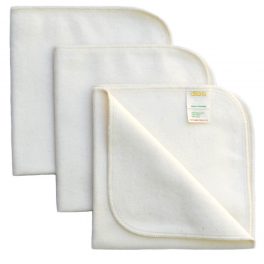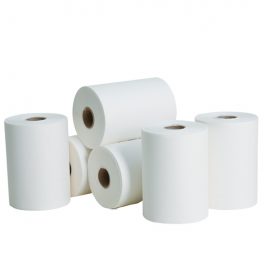Since it was zero waste week last week I thought I'd write a post on how you can live a low waste lifestyle with a baby. Lots of people equate baby with lots of waste. But that doesn't have to be the case. You can have a baby and still live a low waste, eco friendly lifestyle. Sometimes it may require a little more effort, or a costly initial outlay, but in the long run it's totally worth it and you'll probably even end up spending less!
Here are my tips to living a more low waste life with a baby:
- Use cloth nappies - This is where you'll probably make the biggest difference. On average a baby will use 5000 nappies until they're potty trained. That's a lot of nappies ending up in landfill and they take 200 - 500 years to decompose. Cloth nappies are brilliant. Once you get used to them they're so easy to use. I put my dirty nappies in a mesh bag inside a bucket and when it's full I put the mesh bag with the nappies inside in the washing machine. This is usually around every 2 1/2 days. It's really not much extra effort and saves so many nappies from going to landfill. Even using cloth nappies part time is better for the environment. I use the Disana Brushed Cotton Nappy Liners as inserts to absorb the wee. These are brilliant because they're not bulky, they have a good absorbency but they're also quick to dry after washing. I also use the Disana Paper Fleece Nappy Liners. I love these because if there's no poop, I can put them in the wash to use again! They usually survive 2-3 washes.


- Washable wipes for bums and faces - By using these you're saving money and waste, and they're so much better than disposable wipes. They clean more effectively and we very rarely have a nappy rash incident. I have a box on the changing table which I fill with water and a couple of drops of lavender oil and I keep my bum wipes in there. When they're used I pop them in the nappy bucket and they get washed with the nappies. The face wipes I keep downstairs and just wet as needed. I wash these with a normal wash load of Molly's clothes. It couldn't be any simpler. You can even use them on the go. You'll just need a couple of wet bags - one for clean wipes and one for dirty wipes.
- Buy second hand - There are some things for babies that you should always buy new (mattress for example) but for everything else you should try and buy preloved. Many baby items are only used for a short period of time so are in great condition. I buy most of Molly's clothes second hand and we have quite a few second hand toys. We bought her cot and her stroller secondhand too!
- Buy sustainable - If you can't find what you want preloved then look for sustainable items made from natural materials. I bought Molly a wool mattress. Not only is it made from natural materials, it's super comfy and studies suggest that wool can actually help you sleep better. Make sure to buy good quality items and look after them well. Then you can sell them or pass them on so somebody else can enjoy them too.
- Repair before you replace. - Always try and repair what you already own before buying something new. Or you could even up-cycle it into something new to enjoy. I've seen wool mittens made from old jumpers or socks turned into coffee cup cosies. I put Molly's old dummies into a box frame - I've made a great keepsake to put on the wall and I've stopped them ending up in landfill.
- Make something new from what you've already got - It turns out, there's lots of things already in the house that can make great baby toys. Have you tried making a shaker from an old bottle and some pasta? Just make sure the lid is glued on so baby can't unfasten it. A wooden spoon and an upside down plastic tub/tin can make a great drum. And there's endless fun to be had with something as simple as a some fabric scraps stuffed inside an empty tissue box.
There are so many ways in which you can live a low waste lifestyle with a baby. Remember, you don't have to do things perfectly straight away. Every little helps, so start small. Who knows where you'll end up.



